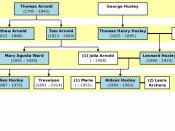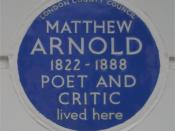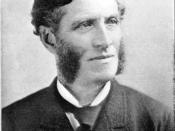"I am bound by my own definition of criticism: a disinterested endeavor to learn and propagate the best that is known and thought in the world;" (Leitch 824) said the Victorian poet and critic Matthew Arnold. Matthew Arnold, an English poet and critic whose work was both a representative of the Romantic ideas and of the Victorian intellectual concerns later on was the primary literary critic of his age. Arnold's critical theories is highlighted mainly through his most important critical prose "The Function of Criticism at the Present Time" in which he examines the role of the critic in society and presents his critical concept. Arnold's contribution to literary theory is his theories on epochs of expansion and epochs of concentration, which throughout the course of this essay will be thoroughly explained. Matthew Arnold, a Romantic poet transformed into a critic of the Romantic Age, contributes to the English critical theories, the concept of epochs of expansion and epochs of concentration.
Matthew Arnold, poet and critic was born on December 24 1822 in Laleham, Middlesex England and passed away April 15, 1888. He was considered the father of the modern criticism movement into the Objective Theory. Arnold was the eldest son of Thomas Arnold, historian and famous headmaster of Rugby, and of Mary (Penrose) Arnold. Throughout the beginning of Arnold's life he was educated at Rugby and then at Balliol College, University of Oxford, where he graduated. Shortly after Arnold graduated he was elected to a fellowship at Oriel, and after teaching a little at Rugby he became a private secretary to the Marquis of Lansdowne. After becoming the private secretary to Lord Lansdowne, he was appointed to inspector of schools, a position he held up until 1886, two years before his death. During his...


